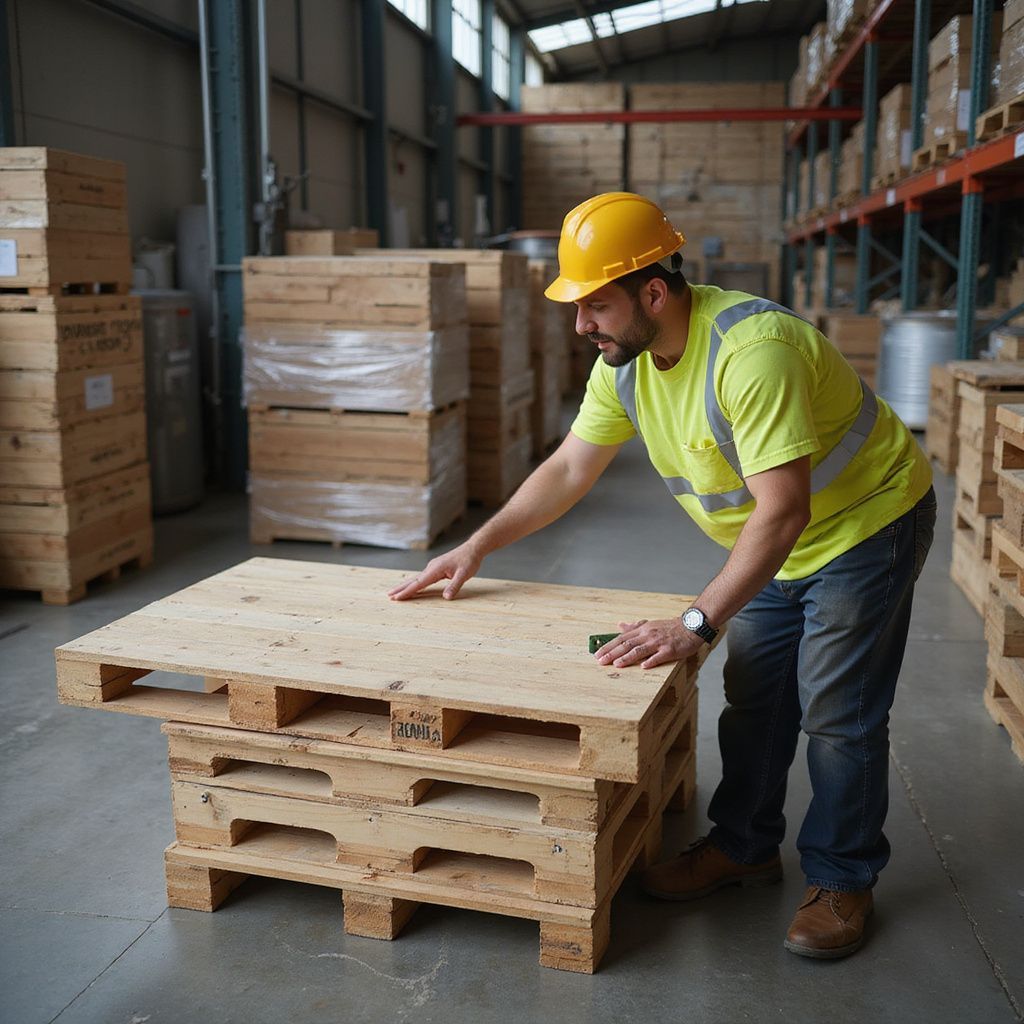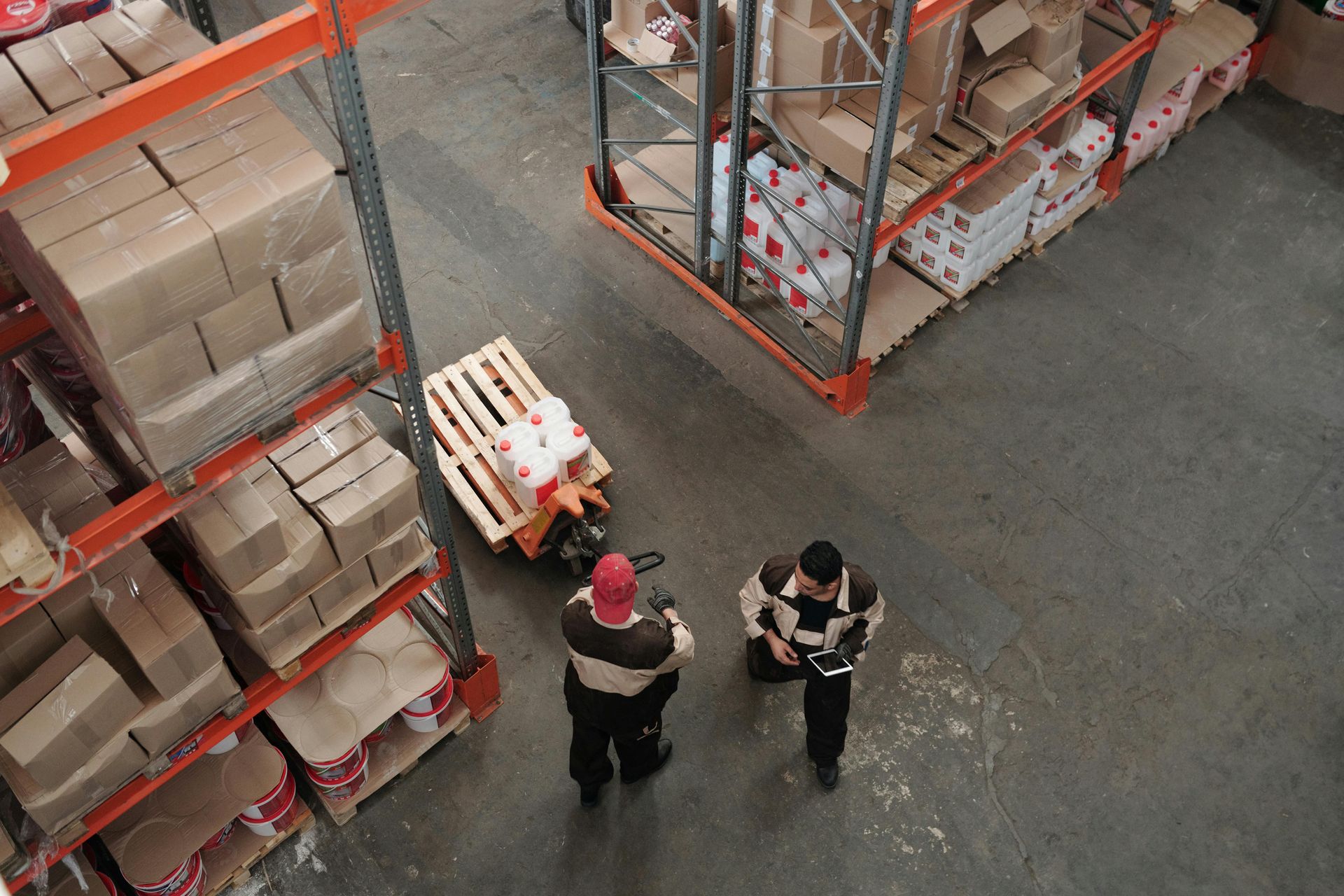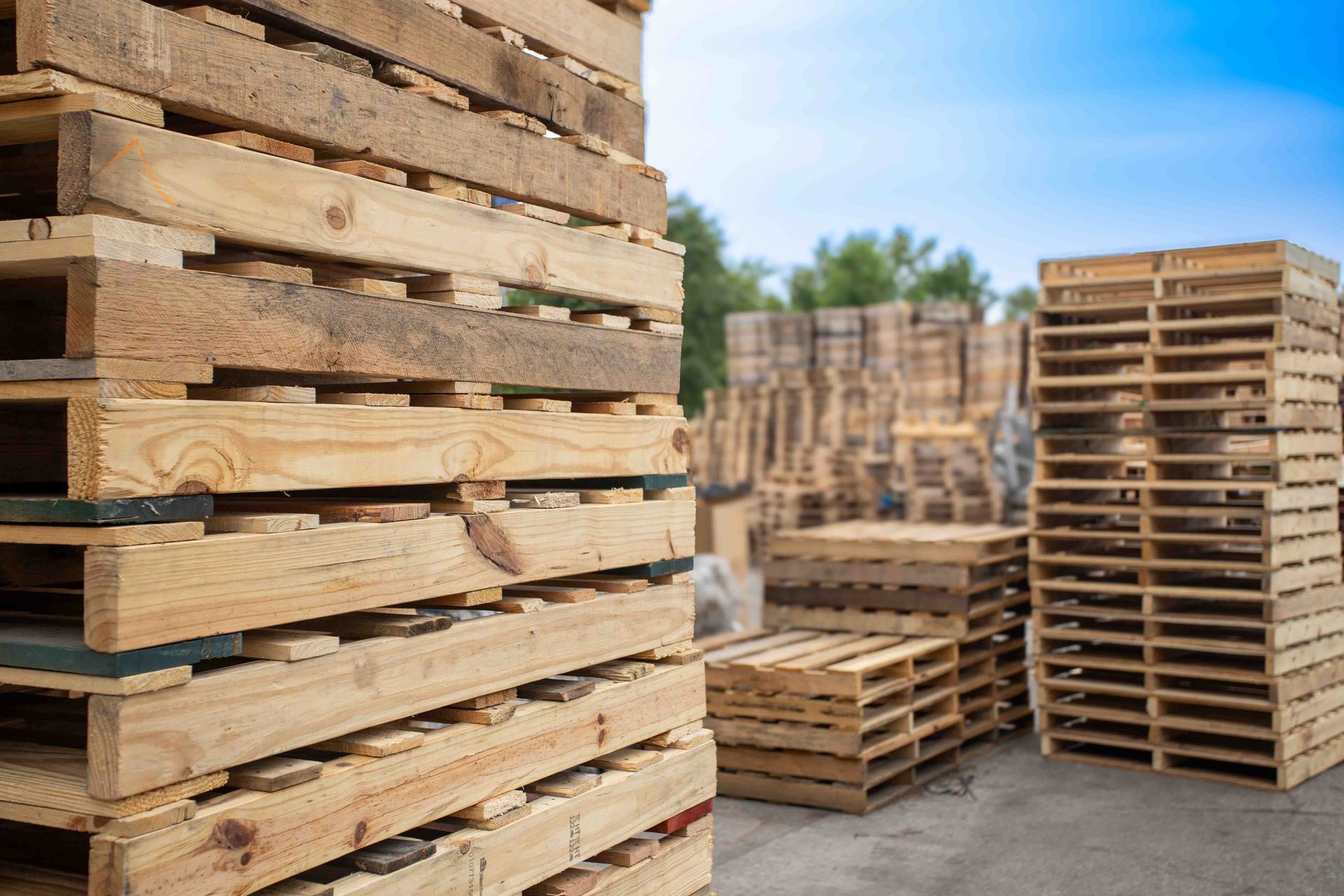Why Pallet Choice Matters for Warehouse Efficiency
In today's fast-paced supply chain world, warehouse efficiency isn't just about speed—it's about precision, safety, and smart operational choices. One often overlooked yet critical factor in this equation is pallet selection.
At first glance, a pallet might seem like a simple wooden platform. However, the type, condition, and design of the pallet you use can have a direct impact on your warehouse productivity, safety, cost management, and overall workflow.
For businesses looking to optimize operations, choosing the right pallet isn't just helpful—it's essential.
Here's why pallet choice matters so much for warehouse efficiency and how making wise decisions in this area can positively affect your bottom line.
The Right Pallet Enhances Workflow
A warehouse functions like a machine, with each part contributing to the smooth movement of goods. Pallets are the foundation of that movement.
The size, durability, and uniformity of your pallets can influence how easily materials are moved, stacked, stored, and shipped.
Poor-quality or inconsistent pallets lead to delays, misaligned loads, or even damaged goods. On the other hand, properly sized and maintained pallets support faster loading and unloading, smoother forklift operations, and easier integration with racking systems and conveyor belts.
Key Takeaway: The right pallet keeps your team moving efficiently and minimizes wasted time.
Better Pallets Result in Fewer Product Damages
Damaged or poorly constructed pallets are one of the leading causes of product loss in warehouse operations.
If a pallet breaks under a load or shifts during transport, goods can be crushed, punctured, or toppled. This is not just a cost issue—it also slows down operations, creates safety hazards, and leads to unhappy customers.
By choosing pallets that are structurally sound and rated for the right weight capacity, you can significantly reduce the risk of product damage.
At Global ICB, we inspect, service, and recycle wood pallets to ensure they're strong and reliable, protecting your products while keeping your supply chain moving.
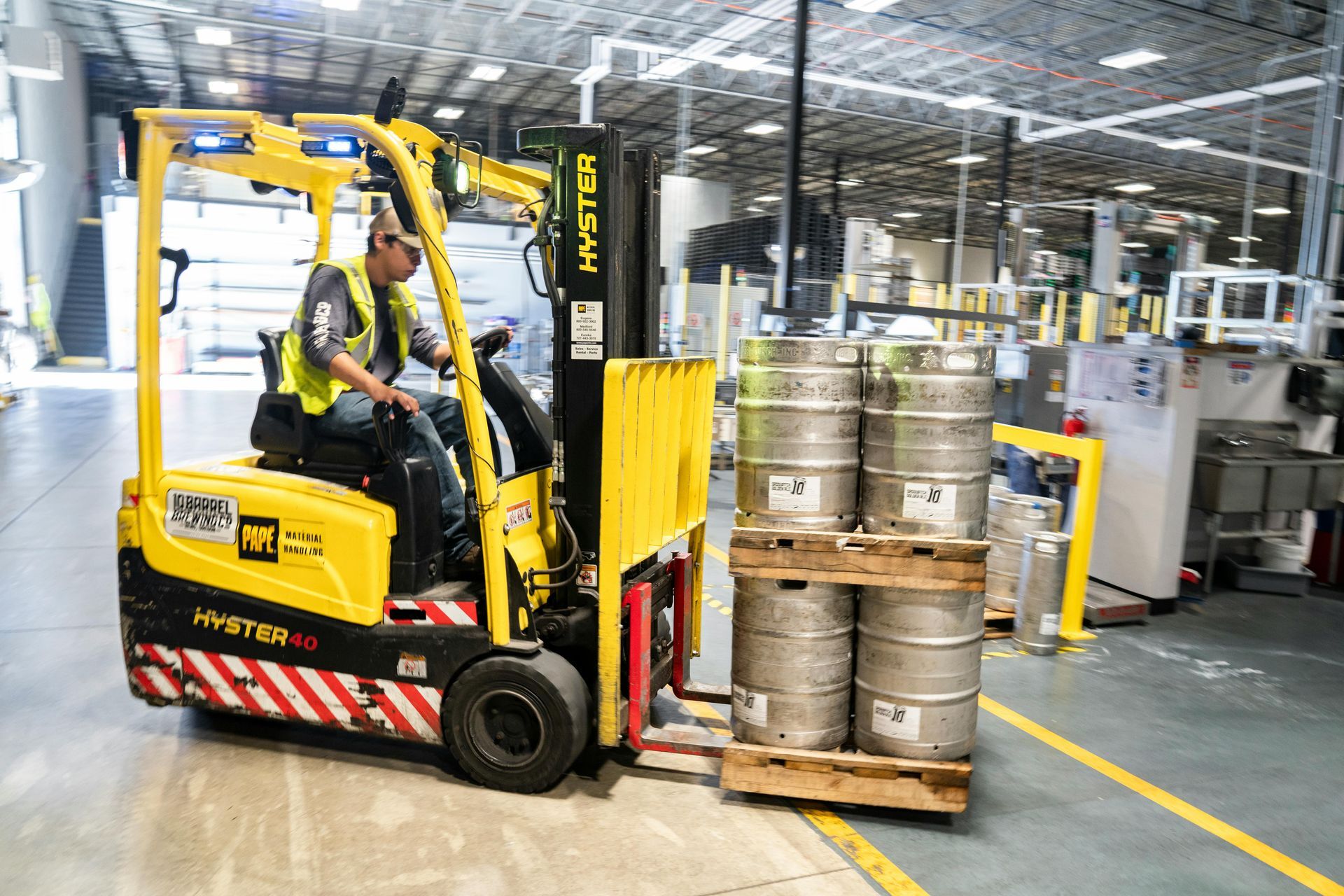
Recycled Pallets Can Offer Both Performance and Value
Some businesses assume that only brand-new pallets can deliver the quality needed for efficient operations. In reality, recycled and reconditioned wood pallets—when serviced and maintained by a professional team—can be just as dependable at a much lower cost.
Recycled pallets are ideal for companies seeking value without compromising on quality. They're also a more environmentally friendly option, helping reduce waste and support sustainability goals.
With consistent inspection and grading, recycled pallets from a trusted provider can meet your warehouse's specific needs while keeping costs under control.
Pallet Uniformity Improves Handling Speed
Uniformity in pallet dimensions and weight means forklifts and pallet jacks can move more quickly and safely. When pallet sizes vary—especially in mixed inventories—it can cause slowdowns, create stacking issues, and require more manual handling.
By sourcing all pallets from a single provider who offers consistency (including custom sizes if needed), you simplify processes and reduce operational hiccups.
Standardization also improves automation compatibility. Suppose your warehouse uses automated storage and retrieval systems (AS/RS), conveyors, or robotic material handling. In that case, uniform pallets are essential to preventing interruptions and downtime.
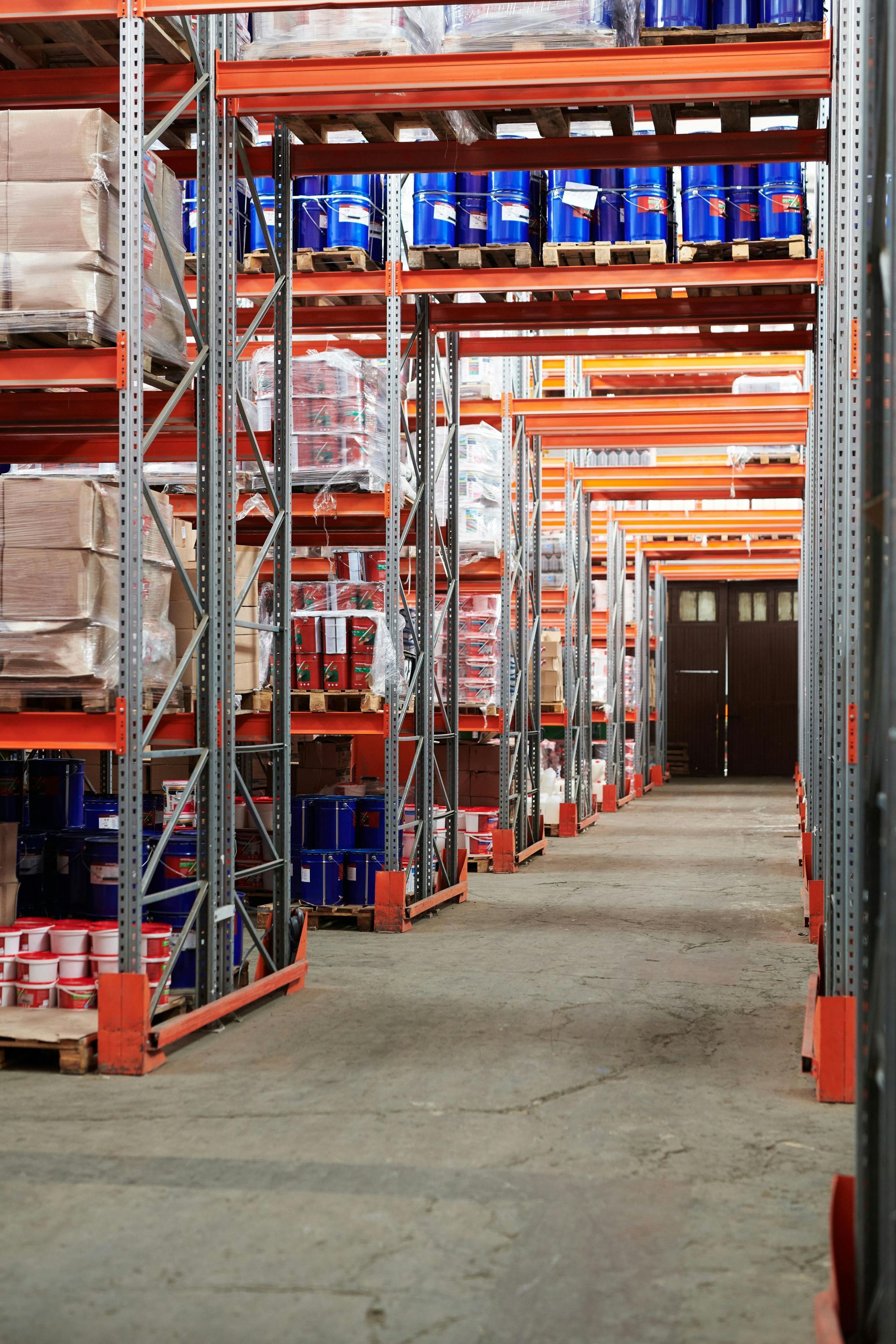
Choosing the Right Pallet Type for Your Operation
Different industries and facilities have different needs.
For example, a warehouse storing dry goods may have very different pallet requirements than one handling frozen foods or pharmaceuticals.
There are several key pallet factors to consider when selecting the appropriate pallet for your organization's needs.
- Load capacity: Too much weight can cause collapse; too little is wasted potential.
- Material: Hardwood vs. softwood, recycled vs. new—each has pros and cons.
- Treatment: Heat-treated (HT) pallets may be required for international shipping.
- Design: Stringer vs. block pallets affect durability and handling.
Our team works closely with customers to match the correct type of pallet to their specific environment and operational demands, ensuring maximum efficiency at every level.
Pallet Management Reduces Bottlenecks
Efficient warehouses focus on the quality of the pallet and implement strong pallet management programs.
That means tracking pallets in and out of your facility, identifying when they need service or replacement, and avoiding shortages or excess inventory.
As a company that sells, services, and recycles wood pallets, we provide our customers with an end-to-end solution.
From pickup and repair to redistribution and recycling, we help clients stay ahead of issues before they impact productivity.
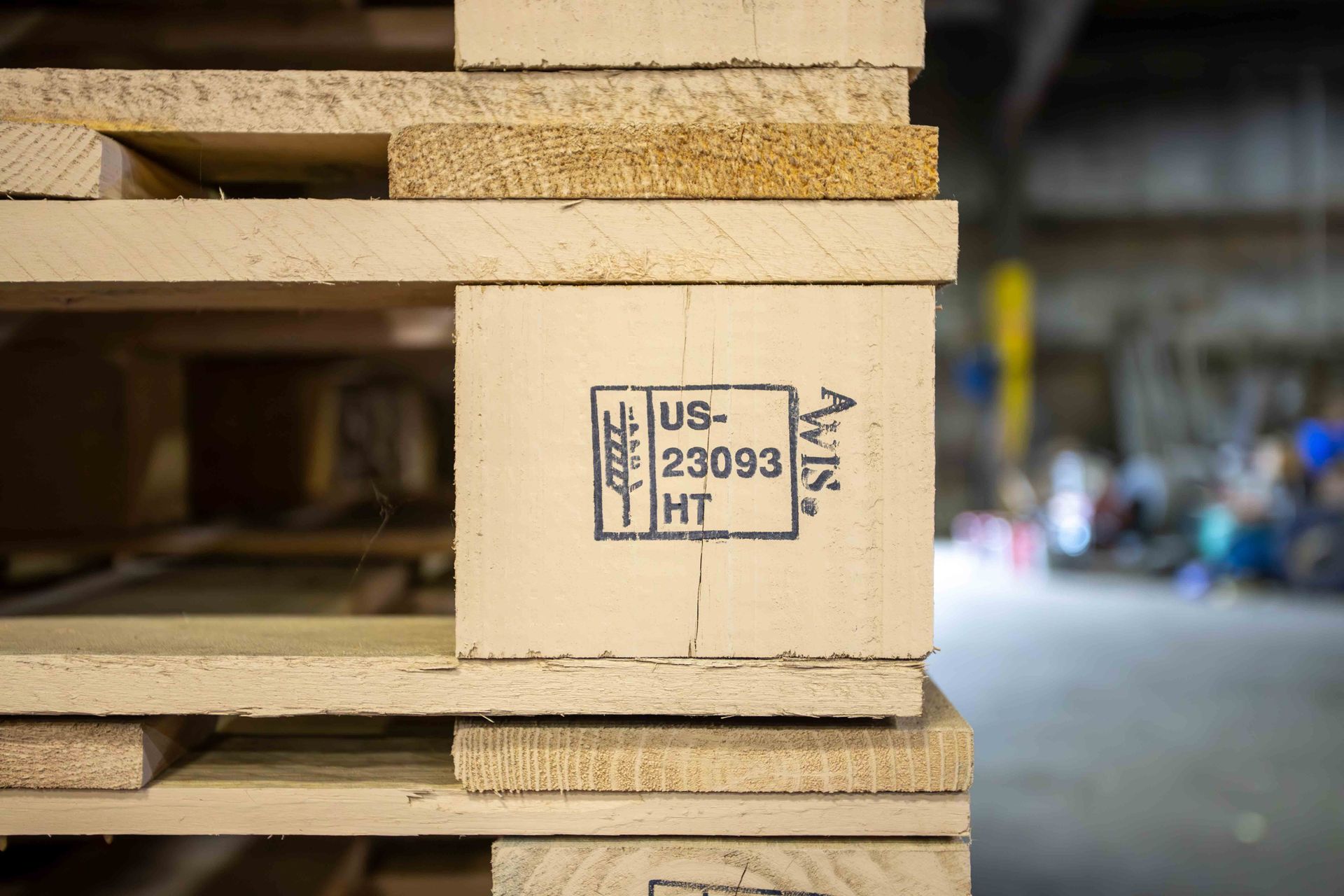
Work With Global ICB
In high-performing warehouse operations, every detail matters, including your pallets. The wrong choice can cause inefficiencies, safety concerns, and rising costs, while the right choice can streamline your entire workflow.
By working with a pallet company that understands the full life cycle of wood pallets—from sale to repair to recycling—you're making a smart investment in long-term warehouse efficiency.
At Global ICB, we're proud to offer full-service pallet recycling solutions that allow businesses to operate more sustainably without sacrificing efficiency or reliability.
Contact us today to learn more about our pickup services, refurbished pallet sales, and custom recycling programs.


